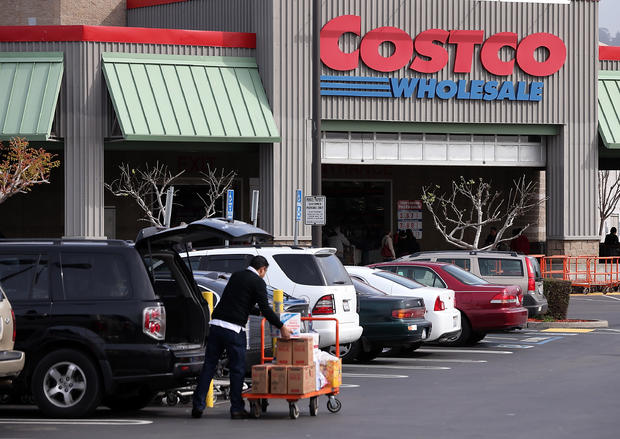Stocks give back Wednesday's gains, plus
NEW YORK -U.S. stocks sunk to their biggest loss in a month-and-a-half Thursday as banks and technology companies tumbled. Interest rates moved lower, hurting financial stocks. The dollar continued to fall compared to the Japanese yen. Stocks have fallen three out of four days this week.
Stocks sharply reversed course after their gains a day ago. Financial companies including Goldman Sachs and Citigroup took the largest losses. Technology and telecommunications companies also fell.
The Dow Jones industrial average fell 174.09 points, or 1 percent, to close at 17,541.96. The Standard & Poor's 500 index shed 24.75 points, or 1.2 percent, finishing at 2,041.91. The Nasdaq composite index lost 72.35 points, or 1.5 percent, to end at 4,848.37.
The market has lost momentum over the last few weeks after a furious rally that wiped out most of its losses from early 2016. Scott Wren, senior global equity strategist for Wells Fargo's Investment Institute, said stocks are rising and falling based on how investors expect the global economy to do.
"People are worried about growth today," he said. "You're not getting much more than modest economic activity."
Financial companies fell sharply. Goldman Sachs slid $4.78, or 3.1 percent, to $150.41, and Citigroup lost $1.59, or 3.8 percent, to $40.27. JPMorgan Chase dipped $1.49, or 2.5 percent, to $57.32. Wren said banks are struggling because economic growth is sluggish and interest rates remain low, which means they can't make as much money from lending.
"Interest rates aren't going to do what banks really need them to do," he said.
eBay led tech stocks lower as it fell $1.33, or 5.2 percent, to $24.10, and Apple gave up $2.42, or 2.2 percent, to $108.54. Telecommunications companies continued to struggle. Verizon fell $1.52, or 2.8 percent, to $52.
Wynn Resorts jumped $10.44, or 11.7 percent, to $99.99 after the hotel and casino company proposed a new development. Wynn said it wants to build a recreational lake and hotel behind its Wynn Las Vegas property.
U.S. government bond prices rose. The yield on the 10-year Treasury note fell to 1.69 percent from 1.76 percent. The dollar continued to weaken against the yen and is now at its lowest compared to the yen in almost a year-and-a-half. On Wednesday it fell to 108.24 yen from 109.62 yen. The euro declined to $1.1377 from $1.1410.
Benchmark U.S. crude fell 49 cents, or 1.3 percent, to $37.26 per barrel in New York. Brent crude, used to price international oil, dropped 41 cents to $39.43 a barrel in London.
Wholesale club operator Costco declined after the company disclosed its March sales. Its stock fell $4.74, or 3 percent, to $152.03. Retailer Ollie's Bargain Outlet Holdings traded higher after it announced solid quarterly results. The stock climbed $2.34, or 10.3 percent, to $25.04.
HanesBrands said it will buy Champion Europe. HanesBrands owns Champion and the deal gives it control of a company that owned the Champion trademark in Europe as well as the Middle East and Africa. It recently made a similar deal in Japan as well. The underwear, T-shirt and sock maker's stock added 77 cents, or 2.8 percent, to $27.87.
ConAgra Foods added 66 cents, or 1.5 percent, to $46.09. The maker of Chef Boyardee, Hebrew National hot dogs and other packaged foods reported third-quarter profit and sales were stronger than expected.
Used-car dealership chain CarMax reported strong fourth-quarter results, but its stock lost $3.81, or 7.1 percent, to $49.48. The company said it faced a tougher sales environment in the second half of the fiscal year.
The price of gold rose $13.70 or 1.1 percent, to settle at $1,237.50 an ounce, and silver gained 10 cents to $15.16 an ounce. Copper plunged seven cents, or 3.1 percent, to $2.08 a pound.
In other energy trading, wholesale gasoline fell 1 cent to $1.38 a gallon. Heating oil slipped 1 cent to $1.13 a gallon. Natural gas rose 11 cents, or 5.6 percent, to $2.02 per 1,000 cubic feet.
The Labor Department said applications for unemployment benefits fell slightly last week. That shows employers aren't slashing jobs even though there are signs economic growth is weak.
Germany's DAX fell 1 percent, and the CAC-40 in France shed 0.9 percent. Britain's FTSE 100 lost 0.4 percent. In Tokyo, the Nikkei 225 advanced 0.2 percent, and Hong Kong's Hang Seng added 0.3 percent. In South Korea, the Kospi added 0.1 percent.
